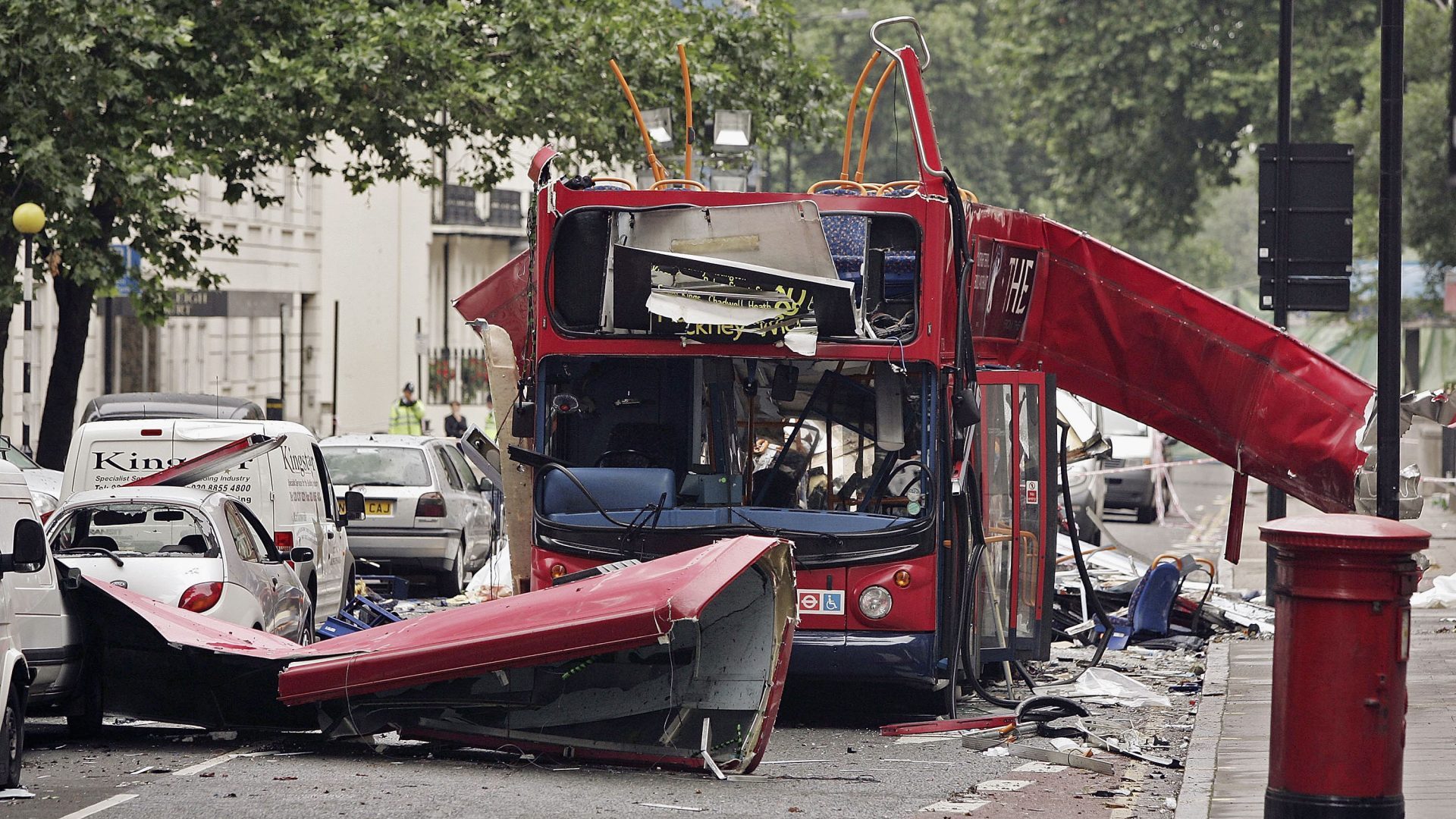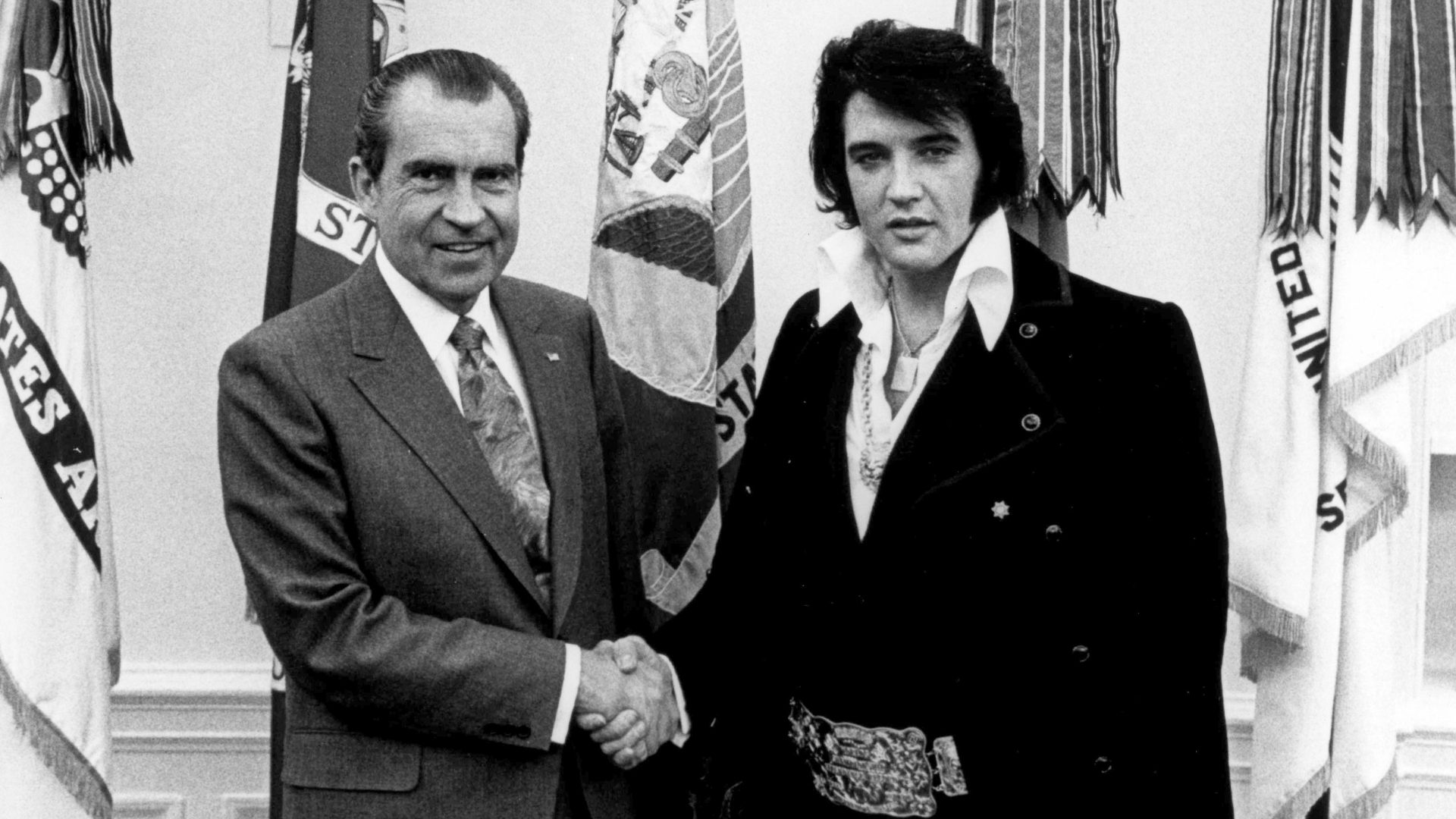On July 31, after 20 years on the run, the US finally tracked down al-Qaida’s 71-year-old leader, Ayman al-Zawahiri. Two Hellfire missiles were fired from a drone, killing him on the balcony of his safe house in Kabul.
Following the withdrawal of coalition forces from Afghanistan last year, the killing of the last key planner of the 9/11 attacks who was still at large marks an end to President Bush’s War on Terror and potentially the end of al-Qaida (AQ) as a centralised global jihadi group. It won’t, however, bring about the end of terrorism.
Regional jihadi groups are highly active in Africa, the Middle East and Asia, and globally Islamic State (Isis) still seeks to inspire attacks in the West, if lacking the ability of AQ at its peak to coordinate such attacks. In addition, according to the UK’s security service MI5, one in five attempted attacks in the UK are now from extreme far-right groups. The direction of the UK’s economy, the amount of time young people spent exposed to online extremist material while in isolation during Covid lockdowns and our current toxic politics could be creating a perfect storm that sees a new wave of terror attacks hit the UK, spawned from a different ideology but taking root in similar societal conditions and appealing to similar universal human needs.
The War on Terror may be over but the war against terrorism is a true forever war, and whatever their ideology new generations of terrorists, consciously or not, will be influenced by Zawahiri’s legacy.
Zawahiri had embraced radical politics as a teenager in Egypt. The country’s rapid defeat in the 1967 Six-Day War with Israel persuaded him that existing Arab structures were bankrupt. After qualifying as a doctor, he travelled to Pakistan to use his medical training to treat those fighting the Soviets over the border in Afghanistan.
Returning from Pakistan, he became a founding member of the Egyptian Islamic Jihad. After the group’s assassination of the Egyptian president, Anwar Sadat, in 1981, Zawahiri was arrested and tortured in prison. Zawahiri was inspired by his treatment and the writing of the Egyptian jihadist Sayyid Qutb, who saw a corrupted Islamic society that was already failing to live how The Prophet intended, under attack from western materialism and immorality. Zawahiri envisioned an organisation that would conduct offensive operations not just against the Egyptian government but against all insufficiently pious governments across the Arab world.
This organisation became al-Qaida. As a founder in the late 1980s, Zawahiri won the initial ideological debate with Osama bin Laden’s key mentor, Palestinian exile Abdullah Azzam. While Azzam argued for a defensive jihad focused on defeating the Soviets in Afghanistan, Zawahiri argued for an offensive jihad that would attack all apostate regimes. After Azzam was killed in a car bombing in Peshawar, Bin Laden and Zawahiri together took the AQ’s offensive jihad global by arguing that AQ couldn’t defeat governments in the Middle East who were the “near enemy” without first defeating the “far enemy” who was supporting them: the US. That led to a series of attacks against US targets, beginning with the 1998 embassy bombings in East Africa and culminating in the September 11 attacks.
When Zawahiri assumed the leadership after Bin Laden’s death in 2011, AQ was the uncontested leader of the global jihadi movement. By his death that was no longer the case. While he was potentially the biggest influence on AQ ideology and strategy, he was not an inspiring leader. Terrorism analyst Peter Bergen described Zawahiri as a “black hole of charisma”.
In 2014 Abu Bakr al-Baghdadi, Emir of Al-Qaida in Iraq, disobeyed Zawahiri by expanding into Syria, before breaking away from AQ, renaming his organisation “Islamic State of Iraq”. He went on to establish the Islamic State Caliphate and declare that Zawahiri and AQ had deviated from the true jihadist path. Despite the defeat of Isis on the battlefield it now retains a stronger jihadist brand. The unrelenting pressure on AQ leadership by the US since 9/11 has also taken its toll. With Zawahiri gone there is now a succession crisis, with the next two leaders in line under house arrest in Iran.
So, what did Zawahiri achieve other than the deaths of thousands of innocent people? In Egypt, President Hosni Mubarak, who came to power after the assassination of Sadat, was finally removed by the Arab spring in 2011, a movement AQ was not involved in. After a brief period when the Muslim Brotherhood ran the country, the military are back, through the presidency of Abdel Fattah el-Sisi, former commander-in-chief of the armed forces. There are no regimes in the Middle East that Qutb or Zawahiri would see as following sharia law as laid down at the time of The Prophet.
post-9/11, AQ didn’t achieve another attack on US soil and the US remains the most influential foreign power across the Middle East.
While the violence that Zawahiri instigated may not have achieved his political goals, his influence on global jihadism and terrorism more broadly has been profound. He improved AQ’s use of media, in particular the paradoxical use of new technologies by an organisation that wanted to take society back to the Middle Ages. Zawahiri and AQ’s media wing pioneered the use of the internet to influence, fundraise, recruit and direct attacks that have become industry standard for terrorist groups of all ideologies. This enabled Zawahiri to globalise jihadism. Like the CEO of a multinational corporation, he created AQ local franchises and accepted the allegiance of existing jihadi groups, like al-Shabaab in East Africa and Al Qaeda in the Islamic Maghreb in Mali, bringing them and their causes under a global banner.
While Bin Laden, Zawahiri and al-Baghdadi are now gone, their ideology lives on. It has been likened to a parasite that enters a host and takes it over, working against the host’s interests to achieve its goals.
As an intelligence officer, I often encountered terrorist suspects that had application forms for joining the police and military or had previously been members of violent gangs. It’s not that they wanted to infiltrate the security services, they wanted something that working for those organisations offered. It’s not the cause that looks for them, they are looking for a cause. As Joseph Conrad claimed in The Secret Agent, his novel about anarchist terrorists at the turn of the 20th century: “The terrorist and the policeman both come from the same basket.”
A literary rather than biological analogy is closer to the truth. In Herman Melville’s novel Moby-Dick the narrator Ishmael, a sailor stuck on land, is driven by a desire to go to sea. He signs up to serve on the whaler The Pequod and falls under the influence of the ship’s captain, Ahab, a victim of an attack by a great white whale that severed his leg. Motivated by hate, Ahab causes harm to real entities, his crew, in the name of a fictional creation: the vengeful whale, given an agency it didn’t possess. Melville not only captures the desire of young men to search for meaning in adventure and conflict, but also the role of charismatic individuals in developing sense of belonging and a shared worldview.
We have an innate tendency to need more than the satisfaction of our base desires. We strive for status, belonging and meaning. We can find these in the service of political parties, religious creeds, nation-state groups ( joining the military like I did), in the pursuit of wealth and material possessions, in the creation of art, in building a family. But when these other options are not open to you and then when you are told you are a victim and there are those to blame for your victimhood, you might choose to find status, belonging, and meaning in an organisation like Zawahiri’s. Young men across the Middle East facing unemployment, inequality, lack of political freedoms, and elite corruption chose to do just that.
In the UK, three second-generation immigrants born here but always asked “where do you come from?”, living in ghettoised, low-income areas of Leeds, not feeling like they belonged in the old country or the new, joined a young Jamaican convert and chose to blow themselves up on London transport in 2005. Jihadism explained why you didn’t have the status you thought you should and gave you a new status within the group (Isis made sure that fighters had “Isis brides” when reaching the Caliphate), it connected individuals together in a community that created belonging, and it gave jihadis a cause and a fight against injustice that gave them meaning and promised more eternal rewards.
To try to understand is not to justify. While Islamist extremist terrorism remains MI5’s largest operational mission, right wing extremism is growing, and we need to take the lessons from the former to prevent the same damage being done by the latter. In the US, right wing extremism has killed more people since 9/11 than jihadis.
While the situation is not as bad in the UK, MI5 took primacy for right wing terrorism in 2020. Speaking in 2021, MI5’s director general, Ken McCallum, claimed that of right wing terrorism “one in five of our counter-terrorist investigations in Great Britain are extreme right wing. Of the 29 late-stage attack plots disrupted over the last four years, fully 10 have been extreme right wing.”
Most will be familiar with the example of the murdered MP Jo Cox. McCallum also gave the example of Dean Morrice, from Somerset, who was sentenced to 18 years having been convicted of possessing explosives. Morrice was stopped before he was able to conduct an attack, but before his arrest had been actively trying to draw others into his toxic ideology.
Replicating the global jihadi community, there is now a global extreme right wing community, stretching from the US through Europe down to Australia and New Zealand. The head of the FBI, Chris Wray, when visiting London last month claimed that the way right wing terrorists used social media to “egg each other on” makes international cooperation essential. “MI5 might have one dot and we have the other dot…If we’re not super lashed together, we’re going to miss the picture,” Wray said.
In July this year the Intelligence and Security Committee of Parliament (ISC) warned that due to the addition of right wing cases MI5 would need extra resources. MI5 told the committee that, even though the authorities have only seen right wing attacks conducted by middle-aged men, “a significant percentage” of right wing terror suspects were under 24. Are these younger suspects just “keyboard warriors” or the next generation of attack planners in waiting? Our response to them can determine this. If we continue to accelerate the same conditions so rich for AQ’s recruitment drives – unemployment, inequality, lack of political freedoms (or perceived lack, as told by the right wing narrative of cancel culture), and elite corruption – we may well push them to act beyond their virtual echo chambers. We need to invest in grassroots sports and arts that create belonging and meaning for children.
We need to properly fund education. Many teachers in England who feel overstretched by pandemic catchup and curriculum demands fear they are missing signs of far-right radicalisation in classrooms and lack the training to effectively challenge extremist views. Headteachers have expressed concerns over exposure to extremist material online when children were isolated during lockdown. One headteacher serving a mainly white, disadvantaged community, said: “The kind of thing we are coming across is a really strong sense of us and them. The idea that if you are not white, your voice and presence are not as welcome.”
The same sense of victimhood felt by Zawahiri after Egypt’s defeat in the real Six-Day War is being generated by extreme right wing groups from the imagined culture war. This narrative from online fringe communities is being given further credence by repetition in the mainstream media and the highest politicians in the land on both sides of the Atlantic, stoking resentment for short-term political gain. While some right wing extremists might also cite Islamist terrorism as a motivating factor, current political rhetoric and the subsequent increase in right wing extremism may in turn provoke more Islamist extremism.
There are also questions around the degree to which Russia and now the war in Ukraine have affected right wing terrorism. Within the ISC report, suggestions are made about the far-right group Britain First’s connections to Moscow. Pro-Russian narratives are increasingly common among the global extreme right wing community. The security think tank Royal United Services Institute (RUSI) highlights that the international far-right organisation The Base, formed in 2018 and proscribed in the UK in 2021, appears to be directed by Rinaldo Nazzaro, a right wing American based in Russia. Nazzaro is an “accelerationist” who believes in the “acceleration” of racial conflict through violent means such as terrorist attacks. Their goal has echoes of AQ’s stated aims. They believe the conflict they ferment will lead to the eventual collapse of a corrupt society when, for The Base, a white ethnostate can arise out of the ruins, rather than a medieval Islamic Caliphate.
Nazzarro would be familiar with AQ’s tactics from his time as a contractor for the Pentagon and the FBI, which he claimed took him to Iraq and Afghanistan (of note, al-Qaida literally translates from Arabic as “The Base”).
The Base has mirrored AQ’s use of small, clandestine cells, where each of the small group of extremists in the cell know the identities of the people only in their own cell (although lax vetting has allowed infiltration of several cells in recent years by the media and at least one undercover FBI agent). This was a tactic that Zawahiri brought from EIJ to AQ. The Base is actively seeking out “lone actor” attackers, as both AQ and Isis still do.
In January 2020, the FBI arrested three members of The Base just before a gun rights protest in Richmond, Virginia, saying they were discussing “the planning of violence at a specific event in Virginia”. The next day, three more members were arrested for plotting to derail trains and poison water supplies.
A video posted online in 2019 shows Nazzaro in Russia, wearing a T-shirt with an image of Vladimir Putin and the words “Russia, absolute power”. Some members of his own organisation suspect Nazzaro has links to Russian intelligence, although he denies this. In November 2020, a feature-length interview with Nazzaro was broadcast on Russian state TV.
Although The Base began as an online community, since 2019 it has ramped up efforts to host meetups and training around the US and other locations across the English-speaking world. It’s not clear if any such activity has occurred in Russia or if any British extreme-right individuals have gone to fight in Ukraine, on either side, and whether this will be what Afghanistan and the Balkans were for jihadi groups in terms of creating networks. Rising tensions in Northern Ireland, particularly within the loyalist community, could also influence right wing terrorism on the mainland. The international right wing landscape is shifting and opaque, and one we do not well understand.
We are distinguished from other animals by our tremendous capability for reasoned thinking, and it is easy to take comfort in the impressive investigation and operation to finally kill Zawahiri. We are also alone among the animals in our readiness to kill and be killed for nonsensical ideas in an attempt to give our lives meaning. Our intelligence and security services can and will continue to pursue the key leaders of dangerous groups that pose a threat to us, but they cannot prevent the steady stream of foot soldiers joining these groups.
The global War on Terror may be over, but if we fail to address economic inequality and lack of grassroots opportunities for young people in the most deprived areas of our country, and through vacuous political grandstanding on diversity training and immigration, suggest to the same people that they no longer belong, all while failing to deal with rampant elite corruption that enrages and further divides “us and them”, we are potentially encouraging the opening shots of another massive waste of life.
The kindling is there. Another Zawahiri could light the spark.
Andy Owen is an author and former intelligence officer in the British army



